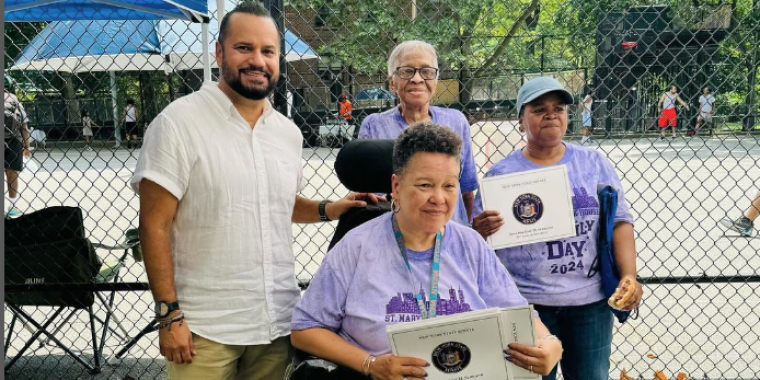
Senator Serrano Says State Budget Enhances Health Care For Children, Seniors And Working Families
2008-2009 health budget shifts resources towards primary and preventative health
Tuesday, April 8, 2008
State Senator José Serrano (D-Manhattan/Bronx) today outlined a number of important achievements in the state health budget, which the legislature passed for 2008-2009. Measures include insuring more children in working families, restoring promised aid increases to nursing homes, and creating a pharmacy discount card that will significantly reduce the cost of prescription drugs – discounts could be 25 percent or more for eligible individuals.
"This is a very difficult year, as the state’s economy suffers as a result of the subprime lending crisis and a steep decline in the financial sector," Senator Serrano said. "But even in difficult times like these, we’ve been able to protect our most vulnerable residents. Health care issues remain one of my top priorities– and it’s something we’ve actually strengthened in this budget."
In the Executive Budget submitted last January, the Governor proposed cuts of $1.1 billion in health care spending. The Legislature restored $272 million, with a special emphasis on investing in programs to enhance access to health care for the poor.
Senator Serrano said the proposed spending plan includes a historic shift of resources towards primary care and preventative health, with $300 million in new investments that will boost hospital outpatient clinics, community health centers and local primary care doctors.
"The Health and Mental Hygiene portion of the state budget is a big step in the right direction," said Senate Democratic Leader Malcolm A. Smith (D-Queens). "This measure will help more New Yorkers receive better health care – with lower health costs. The new Doctors Across New York initiative will encourage doctors to practice in underserved areas. And we’re getting more children covered in the Child Health Plus program. This measure clearly makes us a healthier New York."
Senate Democrats voted to invest $25 million to fully fund the expansion of Child Health Plus, increasing program eligibility from 250 percent to 400 percent of the Federal Poverty Level, or $70,400 for a family of three. In addition, the lawmakers rejected the Executive’s proposal to nearly double family premiums to fund the expansion.
"We expanded health coverage for uninsured children, and we paid for it directly and in full," Senator Serrano said. "I’m working to reduce the burden on hardworking families, not increase it."
In another key move, the Legislature acted to create a new EPIC Drug Discount Program, offering significant drug discounts to residents between the ages of 50 and 64 and to New Yorkers with disabilities. The current EPIC program (Elderly Pharmaceutical Insurance Coverage) helps pay the cost of prescriptions for New Yorkers 65 or older. It is estimated that hundreds of thousands of older New Yorkers will be eligible for the new program.
Senator Serrano also noted that the proposed Executive Budget canceled $85 million in retroactive payments for nursing homes that were part of last year’s budget agreement. The legislative budget restored these promised funds and invested an additional $15 million for worker recruitment and retention.
"These new funds will help keep our best and most experienced health care workers on the job, providing essential services for New Yorkers who need long-term care, " Senator Serrano said. "Even in fiscally difficult times, I believe it is our solemn responsibility to ensure there is an effective safety net for our poor, disabled and elderly in need of residential care."
The agreed-upon health budget begins to put in place a new Medicaid reimbursement system that enhances primary and preventative care. It also creates Doctors Across New York, a $15.6 million program that will increase the number of physicians in underserved areas across New York, with a new large-scale loan-forgiveness program for physicians who commit to caring for the underserved.
"I also want to commend Governor Paterson for his extraordinary leadership so far in building consensus during complex negotiations," Senator Serrano concluded. "While I’m disappointed that the Health subcommittee was unable to moderate the impact of 2 percent across-the-board cuts to non-entitlement programs, which will hurt AIDS services and other community-based health care providers, I also recognize the real progress we’ve made on health care reform.
